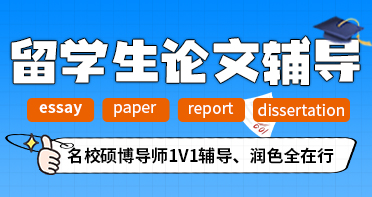Economics專業essay范文
在海外留學讀經濟學專業,留學生需要應對各種類型的essay作業,甚至有些課程一個星期就需要完成一兩篇essay,留學初期各種論文結構都不了解,所以會向了解相關的范文,這里essay輔導給大家分享一篇Economics專業essay范文。

Title:Evaluate the role of government intervention in the market for public goods
Introduction
Public goods are goods that are non-excludable and non-rivalrous, which means that they cannot be denied to anyone and their consumption by one person does not reduce the availability of the good for others. As a result, the market for public goods is often characterized by market failure, where the private sector does not provide an efficient level of public goods. In this essay, I will evaluate the role of government intervention in the market for public goods, including its effectiveness, limitations, and alternative solutions.
Government Intervention in the Market for Public Goods
One of the main reasons for government intervention in the market for public goods is to address the issue of market failure. Since public goods are non-excludable and non-rivalrous, there is no incentive for private firms to provide these goods. This leads to an under-provision of public goods, as the private sector only considers the private benefits and costs of producing these goods, while ignoring the social benefits and costs.
To address this issue, governments can intervene in the market for public goods byproviding these goods themselves or by subsidizing their provision by private firms. For example, the government can provide public goods such as national defense, public parks, and street lighting. Alternatively, the government can subsidize private firms to provide public goods such as education, healthcare, and public transportation.
Effectiveness of Government Intervention
Government intervention in the market for public goods can be effective in addressing market failure by providing public goods that the private sector would not provide. The provision of public goods by the government can ensure that everyone has access to these goods, regardless of their ability to pay. This can lead to positive externalities, such as increased social welfare and economic growth.
Moreover, government intervention can lead to the provision of public goods at a lower cost than the private sector, due to economies of scale and the ability to use taxation to fund public goods. This can result in a more efficient provision of public goods and an improvement in overall social welfare.
Limitations of Government Intervention
However, government intervention in the market for public goods also has its limitations. One of the main limitations is the issue of political bias and corruption, where the government may provide public goods for political gain rather than for the benefit of society. This can result in the provision of public goods that are not needed or are of low quality.
Additionally, government intervention can lead to a misallocation of resources, where the government may prioritize the provision of certain public goods over others. This can result in an inefficient allocation of resources anda reduction in overall social welfare.
Furthermore, the government may face difficulties in determining the optimal level of public goods provision. The government may over-provide public goods, leading to a waste of resources, or under-provide public goods, leading to a reduction in social welfare.
Alternative Solutions to Government Intervention
There are alternative solutions to government intervention in the market for public goods. One solution is the use of public-private partnerships (PPPs) to provide public goods. PPPs involve a partnership between the government and private firms to provide public goods. This can lead to a more efficient provision of public goods, as private firms can utilize their expertise and resources, while the government can ensure that public goods are provided for the benefit of society.
Another solution is the use of market-based mechanisms to provide public goods. For example, the government can use auctioning or charging user fees to provide public goods. This can ensure that public goods are provided at the optimal level, as users pay for the benefits they receive.
Conclusion
In conclusion, government intervention in the market for public goods can be effective in addressing market failure, by providing public goods that the private sector would not provide. However, government intervention also has its limitations, including political bias, misallocation of resources, and difficulties in determining the optimal level of public goods provision. Alternative solutions, such as PPPs and market-based mechanisms, can also be used to provide public goods. Governments need to carefully consider the costs and benefits of government intervention in the marketfor public goods and choose the most appropriate solution based on the specific context and situation.
這篇以“Evaluate the role of government intervention in the market for public ”為題目的Economics專業essay范文,輔無憂就為大家分享到這里,如果你正好有相關的留學生Economics輔導等需求,歡迎隨時向輔無憂尋求輔導幫助。
本文鏈接:http://www.8mav1411.com/shows/51/4397.html
輔無憂教育版權所有,未經書面授權,嚴禁轉載。

 最新問答
最新問答- 杜倫大學科學計算與數據分析課程怎么預... 2025-09-05
- 香港科技大學ACCT5410作業難題多嗎... 2025-09-05
- 新南威爾士大學工程力學課程重點 2025-09-05
- 曼徹斯特大學計算機科學選課需要注意哪... 2025-09-04
- 香港城市大學應用社會學課程能輔導嗎? 2025-09-04
- 香港都會大學媒體與社會作業不會寫怎么... 2025-09-04
- 新南威爾士大學營銷分析碩士學習哪些課... 2025-09-03
- 莫納什大學傳媒學大二作業不會寫怎么辦... 2025-09-03
- 約翰霍普金斯大學留學生需要找輔導嗎? 2025-09-03
- 加州大學洛杉磯分校金融工程課程怎么預... 2025-09-03




 熱門標簽
熱門標簽 




 fuwuyou520
fuwuyou520